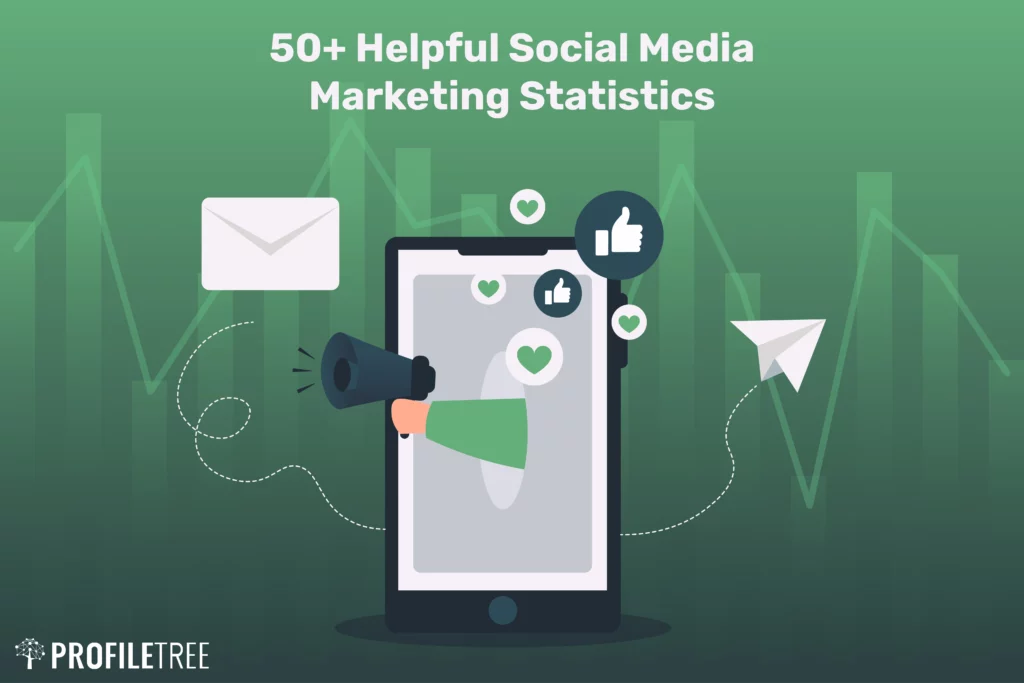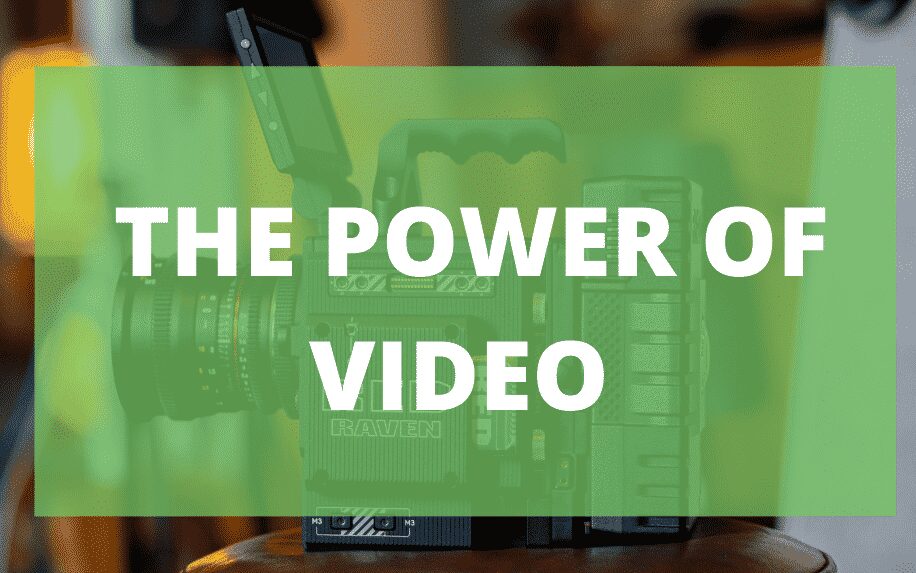Exploring the world of social media can be like stepping into a colorful, bustling marketplace, where each platform is a different stall, offering unique and exciting ways for businesses and people to talk and connect. Places like Facebook, Instagram, and LinkedIn are like popular meeting spots, each with its own special way of letting businesses talk to customers and share their story. Meanwhile, newer platforms, like TikTok, bring fresh, fun, and quick ways to share messages and catch attention. In this article, we’ll take a closer look at the most popular social media platforms, talking about what they do and sharing tips on how businesses and creators can use them to stand out and make a real impact online.

Table of Contents
The Most Popular Social Media Platforms (Number of Users)
- Facebook: 2.9 billion monthly active users.
- YouTube: 2.2 billion logged-in monthly users.
- WhatsApp: 2 billion monthly active users.
- Instagram: 2 billion monthly active users.
- WeChat: 1.26 billion monthly active users
- TikTok: 1 billion monthly active users.
- LinkedIn: 950 million users.
- X (Twitter): Around 528.3 million monthly active users.
- Snapchat: Approximately 493 million monthly active users.
- Pinterest: Approximately 465 million monthly active users.
- Reddit: Approximately 430 million monthly active users.
Disclaimer: These numbers are updated in 2023, they are subject to change.
Read more: When Was Social Media Invented
An Overview on Some of The Most Popular Social Media Platforms
The Most Popular Social Media Platforms #1: Facebook
Encompassing a wide range of age groups, Facebook establishes itself as a multifaceted platform enabling businesses and creators alike to build communities and broaden their influence. The platform provides features such as Groups, Pages, and Facebook Marketplace, thereby allowing businesses to engage directly with consumers, sell goods, and organise events seamlessly. Simultaneously, content creators find utility in using Live Videos and Stories, forging a closer, more personal relationship with their audience by sharing glimpses into their lives and activities.
A standout feature that sets Facebook apart from its counterparts is its advanced ad manager – Facebook Ads Manager. This tool allows for exceptionally precise targeting, employing a data-driven methodology to ensure that promotional content accurately hits the mark with the intended audience demographic, establishing it as an invaluable instrument in executing effective digital marketing campaigns. Thus, Facebook intertwines community, commerce, and targeted advertising in a comprehensive digital environment.

The Most Popular Social Media Platforms #2: Instagram
Instagram, often likened to a vibrant digital magazine, opens a world where both businesses and individual creators use striking photos and engaging videos to share their stories and products. Widely recognised for its strong impact in realms like lifestyle, fashion, and travel, Instagram offers a toolkit of features – Reels for short, catchy videos, IGTV for longer content, and Shoppable Posts to seamlessly connect audiences with products.
For businesses, the platform presents a dual opportunity: ads and influencer partnerships. They not only broaden visibility but can also translate into direct purchases and website traffic. Meanwhile, creators harness the platform to shape their digital presence, build an interactive community, engage in brand collaborations, and even introduce their own product lines.
In the dynamic and bustling environment of Instagram, crafting and delivering content that skillfully merges genuine engagement with strategic storytelling becomes pivotal. That allows you to create a niche that nurtures follower loyalty and facilitates ongoing interaction among the young and visually-driven user base.

The Most Popular Social Media Platforms #3: X (Twitter)
Twitter is the pulsating heart of real-time discussions and political debates. The platform offers a unique environment where content virality is entwined with timely, relevant posts. The concise nature of tweets and the rapidity of trending hashtags allow businesses and creators to insert themselves into global conversations, thereby attaining visibility amidst diverse audiences. For businesses, Twitter Ads and promotional trends present an opportunity to spotlight products in few, impactful messages. Both creators and brands can utilise the platform to establish a voice in niche discussions, build networks, and engage in direct dialogues with followers.
The Most Popular Social Media Platforms #4: LinkedIn
LinkedIn, with its professional aura, provides a hub where businesses, job seekers, and B2B marketers convene to network, recruit, and forge industry connections. For businesses, LinkedIn offers an advertising platform that enhances the capability to forge B2B relationships and accurately target professionals within specific industries or roles. Content creators find a valuable space in LinkedIn to establish themselves as thought leaders, utilising article publications and post engagements to echo their expertise and insights across networks.
Content on LinkedIn notably tilts towards industry insights, career advancements, and organisational updates, due to its inherently professional context. Consequently, it becomes an essential platform for establishing and maintaining corporate branding, facilitating professional development, and enabling individuals and businesses alike to stay abreast of industry trends and insights, all while connecting within a professional framework.
The Most Popular Social Media Platforms #5: TikTok
Embodying vibrancy and immediacy, TikTok is a lively app that’s all about boosting short, fun, and educational video content. It’s become a big stage for these quick clips that get lots of love, especially from the younger crowd. The app has a smart algorithm of showing people videos they might like and uses hashtag challenges to encourage them to join in on trends, giving both businesses and creators a fun space to try out new, creative ideas and get noticed quickly.
With TikTok Ads, businesses have a chance to jump into what’s popular, showing their products to lots of people. Creators, on the other hand, can quickly gather a big group of followers by making catchy, easy-to-relate-to videos. This is because TikTok is really good at quickly spreading content that people enjoy, giving everyone a chance to get their 15 seconds of fame by being fun and creative in a short time.
The Most Popular Social Media Platforms #6: Snapchat
Snapchat, known for its short-lived, fun messages and pictures, really clicks with a young, playful audience. It gives them brief, playful content and cool augmented reality (AR) filters that can turn you into a puppy or put sunglasses on your face. One key feature is Snapchat Discover, a space where businesses can share exciting ads that people can interact with, and sponsored lenses, which let brands create those fun AR filters themselves.
Creators, or people who make content, love using Snapchat for its genuine, off-the-cuff style, sharing peeks behind the scenes and building close ties with their followers. Its easy-going, real feel gives a great space for sharing true stories and showing off a brand’s personality in a way that feels personal and direct. So, Snapchat becomes a space where being real, creative, and quick to share grabs attention and feels a bit like a fun, fast conversation.
The Most Popular Social Media Platforms #7: Pinterest
Pinterest is like a digital bulletin board where users create collections of images, or “Pins,” that are rich in visual appeal, offering a treasure trove of inspiration, do-it-yourself (DIY) concepts, and shopping opportunities. The platform allows businesses to tap into features like “Shop the Look” and “Promoted Pins” to spotlight their products, making it easier for users to discover and buy them.
Meanwhile, creators and influencers create themed boards that help build their visual brand while inspiring their followers with curated ideas and trends. The content on Pinterest isn’t just about looking good; it’s also about being useful and inspiring to the people who see it, acting like a visual search engine that connects what inspires users to their purchasing decisions. So, it’s a platform where aesthetics meets practicality, and where aspiration can seamlessly transition into action, bridging the gap between wanting and having.
The Most Popular Social Media Platforms #8: YouTube
YouTube, a giant in the world of video content, offers a platform where a multitude of content forms such as tutorials, vlogs, and reviews find a home. YouTube is known for long form video content where users can spend hours watching long videos – something that other video platforms don’t offer. Businesses can utilise YouTube Ads and dedicated brand channels to enhance their product visibility and deliver valuable content to their target audiences. On the other hand, creators have the opportunity to earn money through AdSense and channel memberships, turning their content creation into profitable ventures.
Navigating success on YouTube involves mastering its SEO and algorithm, which demands a sound understanding of keyword usage and strategies to keep viewers watching. Therefore, whether you’re a content creator or a brand, comprehending and leveraging these aspects is crucial to flourish among the vast and varied content available on the platform. In essence, YouTube is where informative and entertaining videos meet strategic visibility and monetisation opportunities, binding viewers and creators in a dynamic, entertaining platform.
The Most Popular Social Media Platforms #9: Quora
Quora operates as a vast, insightful question-and-answer platform where curiosity meets expertise across a myriad of topics and industries. Individuals ask questions, and experts, often including experienced professionals or enthusiasts, provide insightful answers, generating a rich, knowledge-sharing environment.
For businesses and creators, Quora presents a unique opportunity to establish themselves as authorities in their respective niches by providing well-articulated, expert answers to relevant queries.
This not only helps in building credibility but also indirectly promotes their expertise and brand to a wide, yet targeted, audience who are actively seeking information. Ensuring that content is genuinely helpful, non-promotional in nature, and aligns with the query is essential to gaining respect and visibility within the Quora community, thereby making the platform a subtle yet potent tool for knowledge-based marketing and engagement.
The Most Popular Social Media Platforms #10: Reddit
Reddit, often recognized as “the front page of the internet,” is a sprawling network of user-generated forums, or “subreddits,” each devoted to particular topics or interests, spanning from the general to the incredibly niche. The platform champions authenticity and values genuine, non-promotional engagement, making it a complex yet rewarding landscape for businesses and creators. A company can immerse itself into specific subreddits that align with its industry or target audience, participating in and even initiating meaningful discussions.
For creators, Reddit offers a platform to understand audience sentiments, gather feedback, and, when done with respect to community norms, share content that is of genuine interest to specific communities. In both cases, a nuanced understanding of each subreddit’s rules and culture is imperative to navigate Reddit successfully, ensuring that participation is viewed as a valuable contribution rather than disruptive promotion.
Choosing the Right Social Media Platform For Creators and Businesses
Businesses and creators alike stand before a array of social media platforms and opportunities, each platform offering a unique avenue to connect, engage, and grow their audience. The selection of the right platform—or combination thereof—invokes a thorough examination of not only the demographic and psychographic nature of their target audience, but also a reflection of the brand’s inherent voice, message, and goals.
Instagram may cater to a business aiming to tell a visually compelling story to a younger demographic, while LinkedIn provides a conduit for B2B marketers and professionals to connect in a polished, industry-focused environment.
For creators aspiring to tap into trending dialogues with quick, compelling video content, TikTok stands out, while YouTube may cater more to those developing in-depth, quality video content.
The strategic use of Facebook and its unparalleled ad manager could suit varied businesses, while Pinterest’s visual search engine capabilities may be quintessential for those in e-commerce or lifestyle industries.
Reddit and Quora require a finesse in community engagement and authentic content sharing, proving crucial for businesses and creators eager to delve deeply into niche markets or knowledge-sharing respectively.
The key to choosing the most apt social media platform intertwines with a brand’s identity, audience, and message, as well as its analytical strategies and creative expressions to ultimately carve out a distinctive space in the digital realm. Navigating through the myriad options and adopting a tailored, insightful approach ensures that every post, share, and comment brings value to the audience and ultimately, nurtures a growing, engaged community around a brand or creator.


